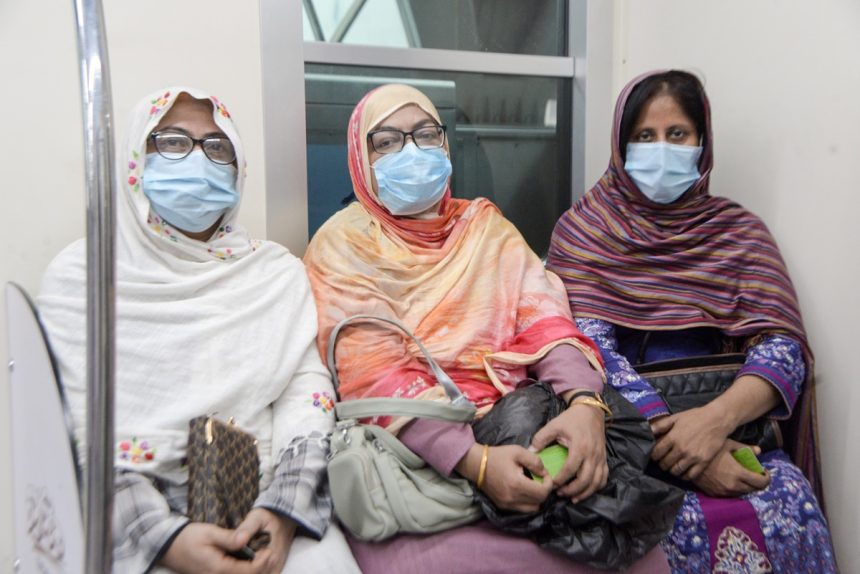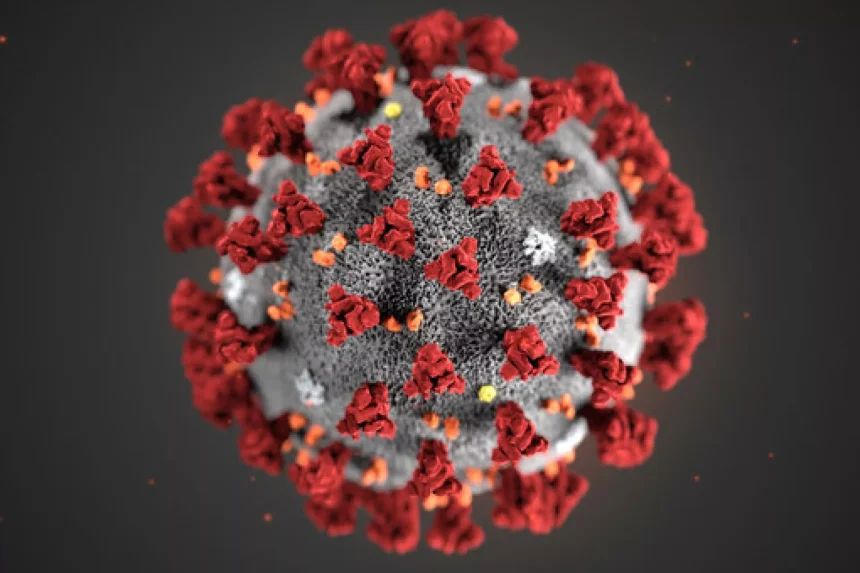In the wake of the yet another rapid spread of Covid-19 virus, public health experts are urging the government to ensure the adequate availability of testing kits at hospitals and health centres, warning that current stockpiles are alarmingly low as around 14 lakh vaccines remain in central reserve.
Despite ongoing risks of transmission, Prof Abu Jafar, director general of the Directorate General of Health Services (DGHS) has confirmed Times of Bangladesh that the Health Department has only 38,000 testing kits in stock nationwide. Of these, 28,000 are rapid antigen kits, and 10,000 are RT-PCR (Real-Time Polymer Chain Reaction) kits.
DGHS has acknowledged the urgent need for replenishment. “We are actively working to procure testing kits from international organisations and local suppliers,” Prof Jafar said. “We’ve also made requests to the World Health Organization (WHO) and UNICEF for 1 lakh RT-PCR kits and 5 lakh rapid diagnostic kits.”
According to DGHS data, Bangladesh has conducted 15,726,794 Covid-19 tests with over 13,744,237 RT-PCR tests, around 155,049 GeneXpert tests, and over 1,827,508 rapid antigen tests to date.
Health specialists are also advising that individuals with compromised immunity, as well as pregnant women, receive Covid-19 vaccinations. For expecting mothers, vaccination is recommended after each pregnancy.
In the meantime, the DGHS says it is in contact with commercial suppliers with previous tenders, as well as with the Chinese embassy in Dhaka, to counter the current shortfall.
According to the Expanded Programme on Immunization (EPI), they hold 31 lakh doses of Pfizer vaccine. Of these, some 17,16,900 doses have been distributed to districts over the past two months.
All of which are set to expire by 6 August 2025.

People with weakened immune systems, pregnant women, and those with respiratory illnesses should prioritise getting vaccinated. He added that while newer vaccines are more effective against Omicron sub-variants, older vaccines still play a critical role in protecting public health, remarked DGHS Director (Disease Control) Prof Dr Halimur Rashid.
Despite the low stock, 366,898,527 doses have already been administered. This includes over 15 crore first doses, 14.22 crore second doses, 6.86 crore booster doses, and over 51.5 lakh fourth doses.
The government had aimed to vaccinate 70 per cent of the populace — roughly 11.92 crore individuals — a goal which has exceeded in terms of registration, with more than 13.11 crore people having signed up through the state-run Surakkha app.
Vaccine distribution shows that 27.6 million first doses of AstraZeneca were administered, alongside 19.5 million second, 16 million third, and 1,341 fourth doses. Pfizer accounts for 22.7 million first doses, 21.7 million second, 30.3 million third, and over 3.17 million fourth doses. Sinopharm has the highest first and second dose figures — 56.8 million and 55.4 million respectively — with about 1.87 million booster doses and over 22,000 fourth doses. Moderna has seen relatively lower use, with 3.78 million first doses and 8.48 million third doses.
Meanwhile, the DGHS confirmed that in the last 24 hours, Bangladesh recorded two new Covid-19 deaths and 15 confirmed cases, bringing the total number of infections to over 20,51,800. Only 174 samples were tested in this period. The country’s death toll has reached 29,502 at the time of filing this report.
Meanwhile, health authorities also reported that 38,000 test kits are currently available, including 28,000 rapid antigen kits and 10,000 RT-PCR kits.
.Experts have noted that reports of the spread of new sub-variants of Covid-19 emerged right around the time of Eid-ul-Azha. During this period, large crowds gathered at cattle markets. People travelling from major cities to villages during the holidays had to spend extended periods in overcrowded buses, trains, and launches. Tourist destinations also saw heavy crowds. All of this has increased the risk of transmission.
Speaking to The Times of Bangladesh about the current Covid-19 situation, Prof Dr Saif Ullah Munshi, chairman of the Department of Virology at the Bangladesh Medical University, said, “There is no reason to panic about the current Covid situation in our country. The WHO is observing this as a ‘Variant of Monitoring’. If any of the infected individuals have comorbidities, they will be considered at higher risk. There is currently no need to take any special measures.”
Dr Mushtaq Hossain, former principal scientific officer at IEDCR, told Times of Bangladesh, “Covid infections are on the rise. If the spread becomes faster and more extensive, the risk will increase. Therefore, preventive measures must be taken at the individual, societal, and state levels.”
He added, “Those who have not yet received a booster dosage of the vaccine and those with comorbidities — such as heart disease, diabetes, cancer, or respiratory illnesses — must get vaccinated. People with weakened immune systems must also be vaccinated along with pregnant women who should receive the vaccine after each pregnancy.”


